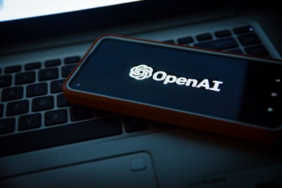OpenAI appears to be exploring opportunities in the hardware sector by potentially developing artificial intelligence (AI) devices, including humanoid robots. The San Francisco-based company recently submitted a trademark application to the US Patent and Trademark Office (USPTO), which outlines a variety of consumer devices that it may look to produce in the near future. This filing also suggests interests in AI chipsets, augmented reality (AR), virtual reality (VR) technologies, and comprehensive software development solutions from cloud to edge.
OpenAI Could Enter the Consumer Hardware Space
The trademark application, filed on January 31, identifies OpenAI as the applicant. Companies typically pursue trademark registrations for several reasons, and this application, while not necessarily indicative of imminent plans, does include a wide range of hardware products that may reflect the firm’s aspirations to enter the consumer electronics market.
In the goods and services portion of the application, OpenAI listed various devices, including earphones, headphones, smartwatches, smart jewelry, media streaming devices, AR and VR headsets, glasses, and user-programmable humanoid robots. Additionally, it referenced the development of AI chipsets designed to utilize “quantum computing resources to optimize AI model performance.”
On a related note, OpenAI CEO Sam Altman revealed in an interview with the South Korean publication The Elec that the company is considering the development of generative AI-enabled devices through collaborations with various partners.
The concept of humanoid robots has also been under review at OpenAI. A report from the previous year indicated that the firm is contemplating the creation of lifelike robots. Recently, several job postings aimed at hiring research engineers for a robotics team were identified, signaling ongoing interest in robotic technology. OpenAI has also invested in several robotics startups, including Figure AI, 1X Technologies, and Physical Intelligence.
The reference to “user-programmed” humanoid robots in the trademark application is particularly noteworthy. This implies that OpenAI may be interested in designing robots capable of performing a diverse range of tasks and allowing for customization based on specific user needs. These robots could potentially leverage generative AI and undergo training within simulated environments. Notably, Nvidia has introduced its Cosmos platform, which enables the simulation of real-world scenarios for the training of robots and autonomous vehicles.
Despite the extensive list of devices mentioned in the trademark filing, it does not guarantee that OpenAI will bring these products to market in the near future. Currently, there is no publicly available evidence to suggest that the company is actively engaged in hardware development.






